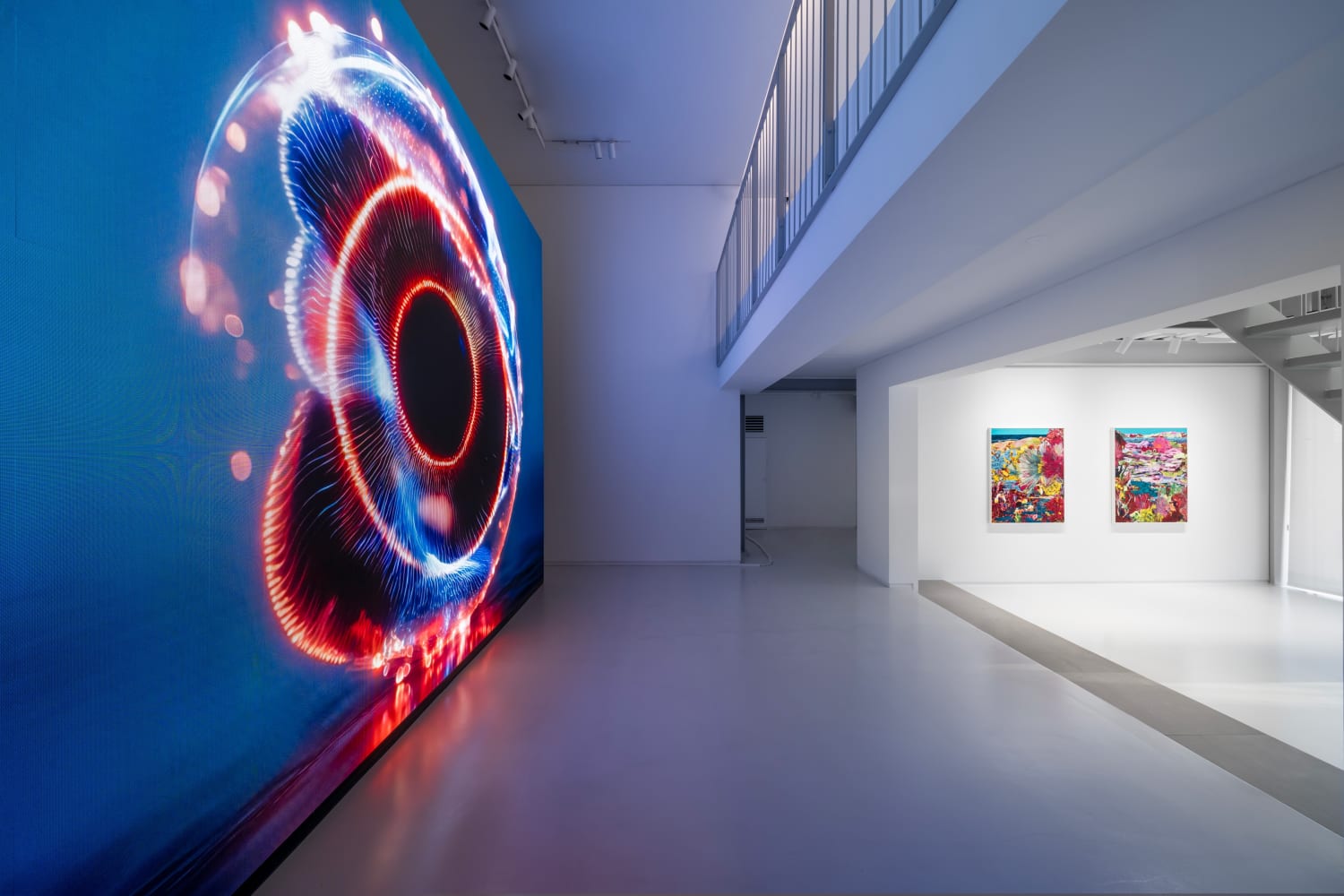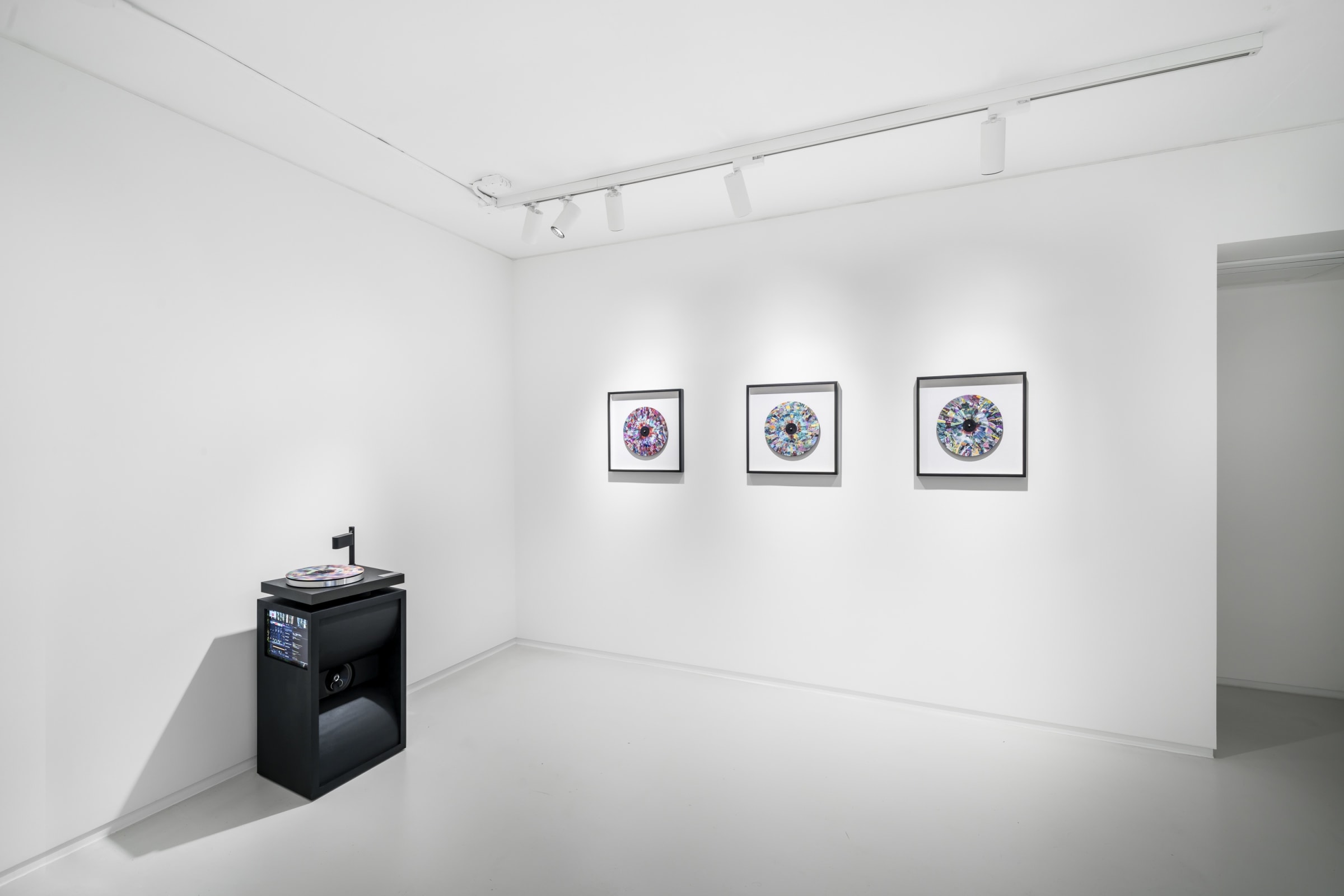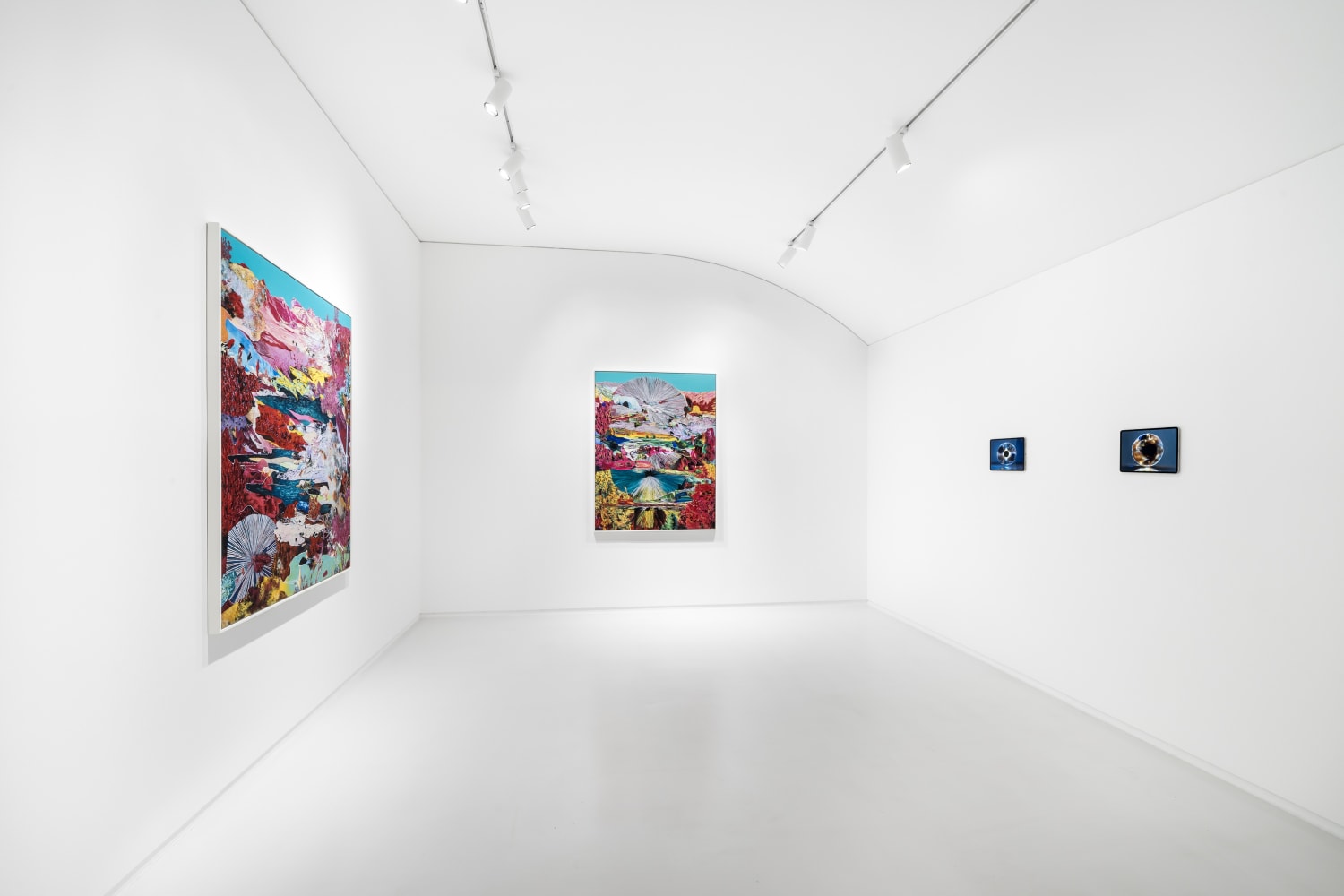 Installation view of
《Champagne Supernova》 ©BB&M
Installation view of
《Champagne Supernova》 ©BB&MBB&M presents 《Champagne
Supernova》, a solo exhibition by media artist Jinjoon
Lee, on view through October 18.
Borrowing its title from the iconic 1995
Oasis track, the exhibition conjures the euphoric yet melancholic symbolism of
youth, fame, and disappearance. This poetic metaphor, widely echoed in pop
culture, reemerged in 2003 as the name of a peculiar supernova, SN 2003fg,
which defied the mass limits of standard stellar explosions—a dazzling
detonation described as “bursting like champagne.”
Lee draws from this dual legacy to reflect
on the paradox of contemporary existence: that our brightest moments often
contain the seeds of their own rapid extinction.
 Jinjoon Lee,
Champagne Supernova, 2025, Single-channel 4K video,
Installation view of 《Champagne
Supernova》 ©BB&M
Jinjoon Lee,
Champagne Supernova, 2025, Single-channel 4K video,
Installation view of 《Champagne
Supernova》 ©BB&MIn April 2025, Lee garnered international
attention with Good Morning Mr. G-Dragon, a project that
transmitted an AI-generated video—based on the iris data of a globally renowned
K-pop artist—alongside his music into deep space. 《Champagne
Supernova》 extends this trajectory, presenting the
culmination of Lee’s long-standing exploration of the iris as a cosmic portal
that dissolves the boundaries between the self and the universe.
At the heart of the exhibition is the
eponymous work, a large-scale video installation displayed on the LED screen.
Using Chain-of-Zoom (CoZ), a deep-learning-based AI super-resolution framework,
Lee has extracted radial patterns from high-resolution images of irises,
transforming them into abstract sequences of light and color. The iris—a unique
biometric identifier—here becomes a celestial imprint, a fleeting trace of pure
luminescence.
Tracing this process of transformation, the
artist invites the viewer to ask: Where does the self begin and end? How finite
or infinite are the memories and data that shape us?
 Installation view of
《Champagne Supernova》 ©BB&M
Installation view of
《Champagne Supernova》 ©BB&MMeanwhile, the turntable, which translates
the visual traces engraved on an LP into auditory data, and the VR theater,
which compels viewers to gaze at AI-sculpted strata, pose the same question on
another sensory plane. Further, the hybrid collage paintings—created by
dismantling dyed data landscapes—reveal a digital strangeness through surfaces
that are at once artificial and biological, presenting a contemporary vanitas
where “disappearance and eerie beauty” coexist in the digital age.
Such expansions of medium embody the
artist’s inquiry into the connections between technology and the human under
the concept of the “liminoid experience,” while showcasing his sculptural
sensibility in a multidimensional way.
 Installation view of
《Champagne Supernova》 ©BB&M
Installation view of
《Champagne Supernova》 ©BB&M《Champagne Supernova》 thus metaphorically reflects the paradox of the supernova: an
explosion of sublime brilliance carrying within it the seeds of its own end.
Like the last flare of a dying star, the exhibition captures fleeting traces of
humanity within the orbit of the digital cosmos, inviting reflection on what it
means to leave behind a portrait at the precise moment of vanishing—where art
and technology collide at the edge of extinction.
































